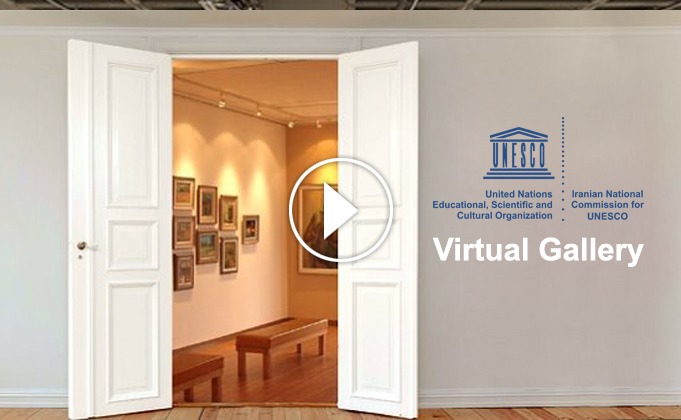On 19 February 2016, the Iranian National Commission for UNESCO was host to a meeting from 14:00 to 15:00 with the presence of:
- Pham Sanh Chau, director of the Vietnam Ministry of Foreign affairs, Culture and UNESCO department,
- Nguyen Hong Thach; Ambassador of Vietnam in Iran,
- Sadollah Nasiri Gheydari; Secretary General of the Iranian National Commission for UNESCO,
- Siamak Khademi, Secretary General Assistant for Executive Affairs,
- Leila Afazel; Advisor to the Secretary General of Iran-NatCom in Executive Affairs
- Farhad Etemadi, Head of the Science Department of Iran-NatCom,
- Mohadesseh Mohebhosseini, Head of the Education Department of Iran-NatCom,
- Mahnam, Head of the Human and Social Sciences Department of Iran-NatCom,
- Ali Hajilari, Deputy Head for International Social Cooperation Department, Ministry of Foreign Affairs
- Tajik, Expert, International Social Cooperation Department, Ministry of Foreign Affairs
- Ms Forough Rezayi, Translator of Iran-NatCom.
Dr. Nasiri began the meeting by emphasizing the significance of UNESCO as one of the most important organization of the world which is based on Culture, Education and science. He continued by referring to the support of Vietnam in inscribing the Persian Qanat and the Lut Desert on UNESC’s World Heritage List. Dr. Nasiri asked Mr. Pham Sanh Chua, as one of the six candidates for the position of UNESCO Director General, to work toward the realization of Sustainable Development goals through the following themes:
- Supporting WAVE. WAVE is an acronym for “World against Violence and Extremism”, which was proposed by the Iranian President Hassan Rouhani;
- Defending cultural heritages and preventing their destruction;
- Depoliticization of non-political issues. Political issues have no place in UNESCO;
Dr. Mohebhosseini as the next speaker of the meeting spoke about the priorities of the Education Department and raised the following issues as the main goals of the Education sector of UNESCO:
- Developing a logical relationship between the SDGs and UNESCO programs/strategies;
- Enhancing the role of the National Commissions for UNESCO;
- Furthering collaboration between Asian countries;
- Enhancing Global Citizenship Education;
- Reinforcing capacity-building of educational systems;
- Enhancing collaboration and coordination regarding the Global Convention on the Recognition of Higher Education Qualifications;
Dr. Mahnam continued the meeting by raising the following points as the main goals of the Human and Social Sciences sector of UNESCO:
- Empowerment of women and other marginalized groups of the society;
- Reviving local games and traditional sports as a means to achieve peace, which is essential for social health improvement;
- Organizing festivals and plans to promote intercultural exchanges between countries;
Following Dr. Mahnam’s speech, Dr. Etemadi talked about the budget of the Communication Department of UNESCO and said that the budget allocated to this department is less than the needs and objectives of this sector.
Mr. Hajilari, as the next speaker referred to the 5 functions of UNESCO as standard setter; clearing house; capacity builder in Member States in UNESCO’s fields of competence; catalyst for international cooperation and emphasized the fact that creating a balance between these functions is of crucial importance.
Mr. Sanh Chao began his speech by emphasizing the strong political relationships between Iran and Vietnam and talked about his priorities and objectives as a would-be Director General of UNESCO. He made his points by referring to the issues discussed by the other speakers. The main points made by Mr. Sanh Chao are as follows:
- Education should be characterized by quality, inclusion and lifelong-learning;
- The importance of Global Citizenship Education lies in the fact that it tries to train people into decent, responsive and responsible citizens;
- Training people to become Global citizens is necessary for the development of any country;
- Priority should be given to the National Commissions because they determine the end results of the plans
- Decentralization process of UNESCO is a kind of out-sourcing and includes the distribution of UNESCO’s experts around the world;
- Genuine empowerment of women and other marginalized group lead to the promotion of peace in the society. Paying attention to marginalized and refugee groups puts an end to the violence and extremism produced thereby;
- Local games reflect our identities and the philosophy behind the games;
- We need to bring everyone together to promote peace and prevent violence and extremism in the context of growing extremism;
- We need to accept each other’s identity and differences and respect cultural diversity;
- We have to prevent any action that might lead to the destruction of any of the cultural; heritage of humanity around the world, because whenever a cultural heritage is inscribed by UNESCO, it becomes a common human property;




